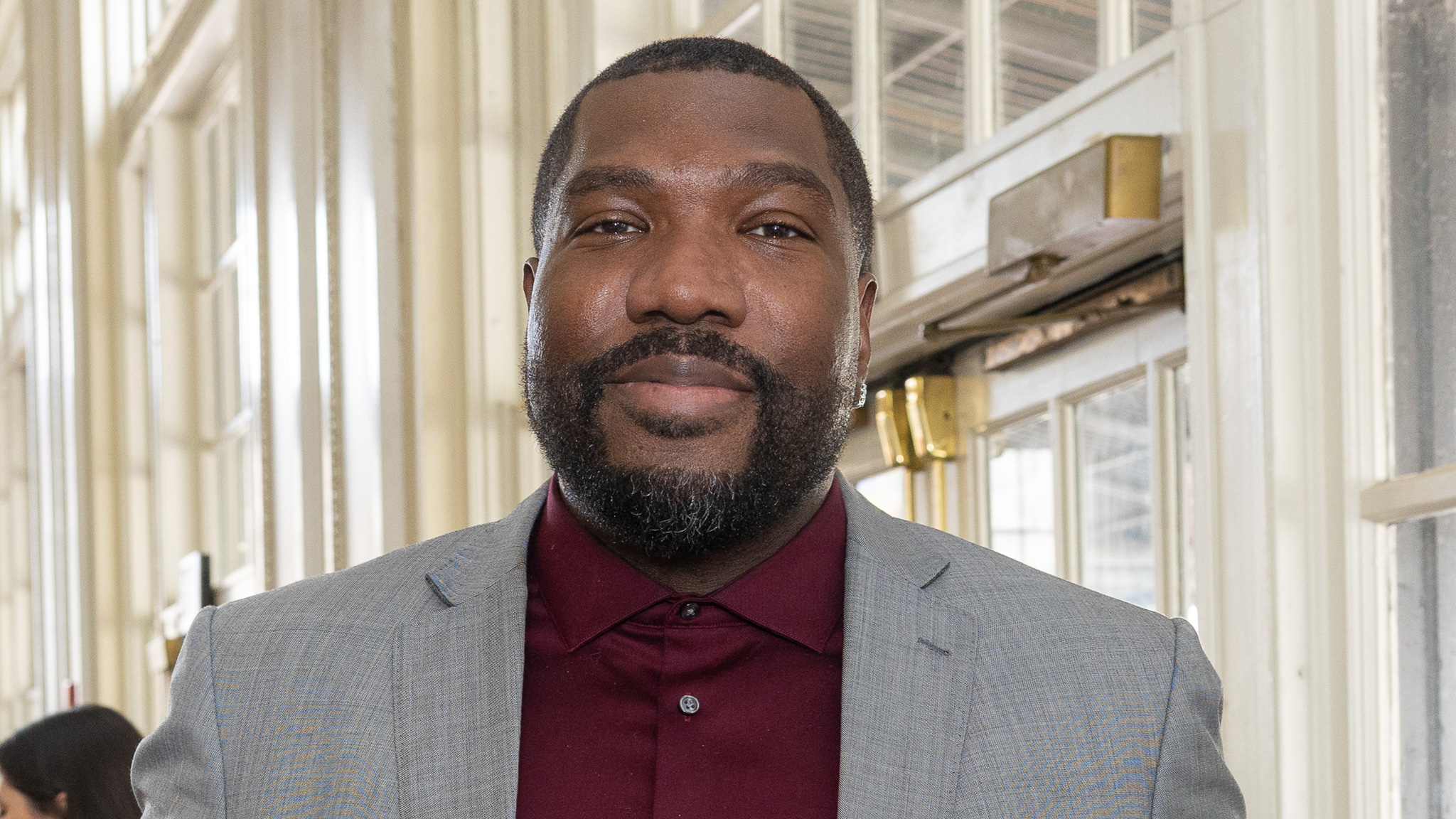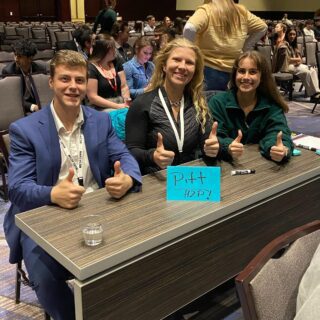
Postdoc’s Research on Foster Care Students Earns Fan Favorite Award
Blayne Stone Jr.’s poster presentation received top marks from his peers at the annual Pitt postdoctoral research symposium
Blayne Stone Jr. felt he couldn’t possibly fit the scope and nuance of his dissertation into a research poster, but he tried anyway, and it paid off.
Stone, a postdoctoral associate in the Pitt School of Education, won the Fan Favorite Poster Award at the University of Pittsburgh Postdoctoral Association’s 2025 Postdoctoral Research Symposium on April 14.
His poster dissertation, “‘Not Only Do I Have to Break the Family Generational Curse, I Have to Set an Example’: The Journey of Black College Students from Foster Care to College,” won in the category of Behavioral Sciences, Humanities, Education, Curriculum, & DEI.
The poster included images and quotes from more than 30 Black college students and alumni from across the country who at one point spent time within the foster care system in the United States. Stone spent hours speaking with each person, hearing vivid stories from their lives.
Stone’s research explored three key questions: what motivated these students to pursue higher education, what factors influenced their choice of institution, and what determined their academic major selection. For his poster presentation, Stone focused primarily on the motivational factors.
“For a lot of them, they never had the opportunity to share their stories, which I think was eye-opening for both of us,” Stone said. For many students, Stone said, they’ve rarely had the chance to “to sit down and engage with them about their experiences, being in foster care, being an individual of color, and being someone who wants to go to school.”
Motivations for Attending College
The research involved participants from diverse educational backgrounds—from first-year students to doctoral candidates—and various institution types including predominantly white institutions, historically Black colleges and universities (HBCUs), and Hispanic-serving institutions (HSIs).
Linda DeAngelo, associate professor of higher education and Stone’s postdoctoral supervisor at Pitt Education, was delighted by his recognition at Pitt’s Postdoctoral Research Symposium.
“I was not at all surprised that Blayne was awarded the Fan Favorite! His passion for and knowledge of the experiences and college pathways of former foster care youth was so clearly evident,” she said.
“I found his poster presentation captivating,” DeAngelo added. “ I am thrilled to have the opportunity to work with Blayne as a postdoctoral scholar as he brings that same intensity to our work together.”
One aspect of Stone’s methodology was to ask participants to bring meaningful artifacts that represented their educational journey. The items ranged from songs and poems that inspired them to stuffed animals and pictures of loved ones that got them through difficult times.
Stone’s findings revealed that family was a significant motivational factor. Many participants pursued education to honor parents or grandparents who never had such opportunities. For others, school represented safety and stability.
“School was, for a lot of them, regarded as a safe haven, a place that they could be away from the challenges of being in foster care and maybe being around kids their age and being able to have some sort of fun,” Stone said.
Shining a light on unequal access
Stone’s research also highlighted critical gaps in support systems. Some participants faced significant challenges, including homelessness during school breaks when campuses closed and limited access to basic resources like computers and food.
“I had individuals who didn’t have a meal plan, so they had to figure out ways to get food and eat on campus,” Stone said. “I had individuals who went to universities that didn’t have winter housing or summer housing. So they ended up in homeless shelters during those breaks because again, there was nowhere else for them to go.”
Despite it being his first poster presentation at the symposium, Stone produced work that resonated with the scholars in attendance. His poster preserved authentic voices of his participants through direct quotes.
“I kept the quotes very raw. I didn’t change them, I did not manipulate them in any way, just so people could read and feel the impact of the participants’ voices and their stories,” Stone said.
Stone joined Pitt in October 2024 as a postdoctoral associate working with DeAngelo, after completing his PhD in Educational Leadership and Policy Analysis at the University of Wisconsin-Madison. His interest in supporting foster youth began when he worked at a foster care residential facility while pursuing his master’s degree.
“I would take my stuff there for my master’s, and the kids would say, ‘Oh, you’re too old, you should be out of school right now.’ And then I started talking to them about college, and in that large group, I think it was only one kid who knew what college was,” Stone recalled. “They had never been on a college campus, they had never even known college existed.”
Stone said the award validates the importance of his research, but he emphasizes there’s still much more work to be done.
“I think there’s so many unknowns, specifically when it comes to Black foster care youth,” he said. “All the state rules and policies are different, so that’s a big factor in terms of how they come to understand education, if they have access to higher education, and what access they have.”




